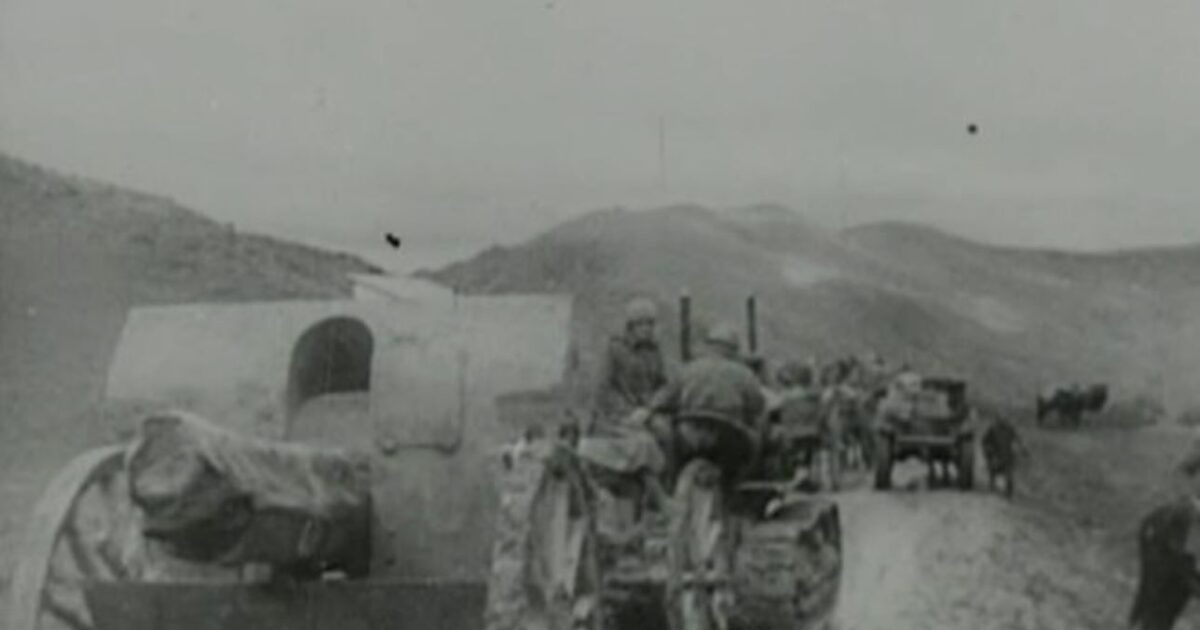In the early hours of the morning October 28, 1940the Italian dictator Benito Mussolini issues an ultimatum through his ambassador in Athens, Emanuele Grazzi, requesting the free passage of Italian troops from Greek territory.
Europe is under the shadow of totalitarianism. Adolf Hitler has already occupied most of the continent, while Great Britain is left almost alone to resist the Axis powers. In this difficult situation, Greece is called upon to take a stand.
Prime Minister Ioannis Metaxas’ answer is clear: “Alors, c’est la guerre” – “Well, we have war.”
“No” immediately becomes a symbol of resistance and Greece enters World War II on the side of the Allies.
Despite the numerical and material superiority of the enemy, the Greek troops repel the Italian attack on Epirus and, within a few weeks, go on the counter-attack. In December 1940, the Greek army had already advanced deep into Albanian territory, occupying cities such as Koritsa, Argyrokastro and Heimarra.
The Greek victory at the front shakes for the first time the myth of the “invincible” Axis and raises the morale of the peoples of occupied Europe.
The Historical Archive of ERT comes to the rescue valuable audio-visual documents from those days – up-to-date footage from the Albanian front, as well as recordings of the gatherings and welcoming ceremonies of the soldiers. Through them, the viewer can feel the climate of unity, courage and determination that prevailed in Greek society in 1940.
But the success of the Greeks forced Nazi Germany to intervene. On April 6, 1941, while most of the Greek forces were still on the Albanian front, Hitler launched the attack against Greece through Bulgaria, as part of Operation Marita. From his headquarters in southern Austria, he personally monitors the progress of the Balkan campaign.
The German invasion was dictated not only by strategic prestige, but also by his need to protect his rear before the impending attack on the Soviet Union. Control of Greece was seen as necessary to secure the Romanian oil fields of Ploesti, which were vital to the Reich’s war machine.
Despite heroic resistance in the forts of the Metaxas line and in Crete, Greece is finally occupied. However, the delay caused by the Greco-Italian campaign forced Hitler to postpone the “Barbarossa” operation against the Soviet Union, with significant consequences for the development of the war.
Greece’s contribution is not only reflected in military operations, but also in the example of resistance and dignity it offered to a world immersed in fear. The “No” of 1940 and the battles that followed remain to this day symbols of freedom, loyalty and unity.
